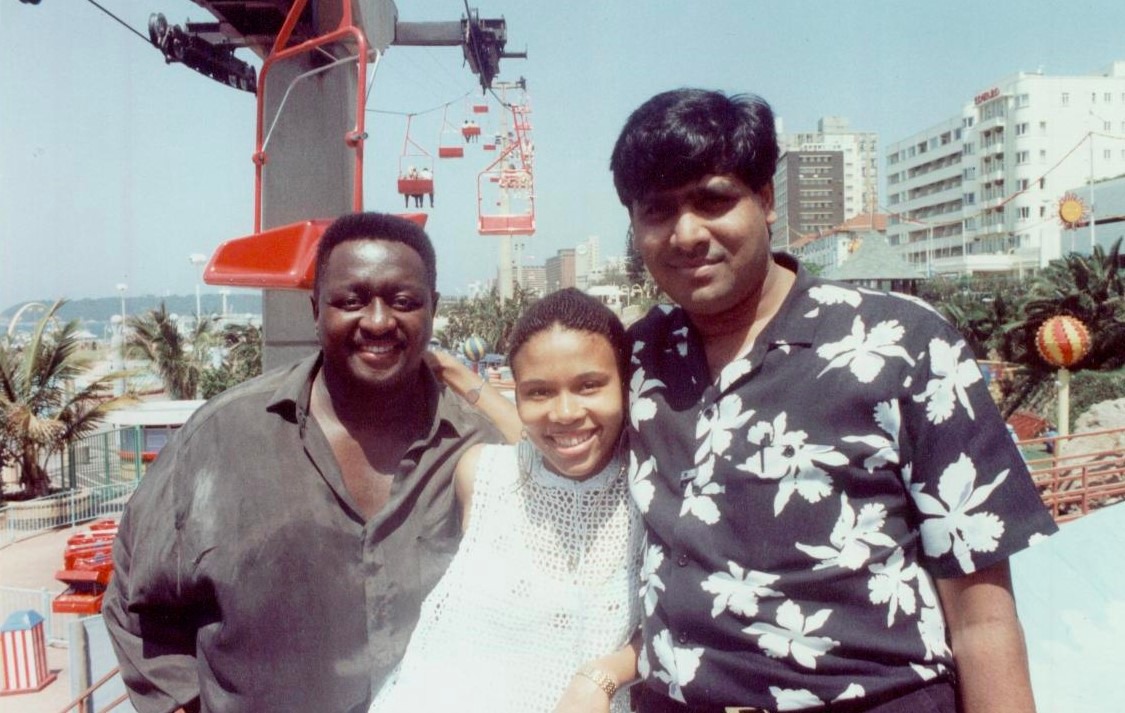After hearing that South African musician, playwright and choreographer Mbongeni Ngema, had passed away on Wednesday after a car accident, I fished out a photo taken 31 years ago when I interviewed Leleti Khumalo, lead actress in the movie Sarafina! Ngema was with her.
It is socially inappropriate in most circles to speak ill of a person in the immediate aftermath of their death. Many would believe it is best to put something behind us rather than to continue to dwell on it. However, it is also important not to whitewash past events, lest history be distorted, and all the facts are not laid bare.
It is true that Ngema was a legend. He was an artist of note for his work that reflected the spirit of resistance during the liberation struggle. He co-wrote the popular satirical play Woza Albert!, which was followed by the musical Asinamali. Then came the massive success of Sarafina! in 1987, which told the story of the 1976 Soweto uprising. In 1998, Ngema was inducted into the New York Hall of Fame as one of the revered writers of the 21st century. He also composed several music albums including Township Fever, Laduma, Woza My Fohloza, Jive Madlokovu, and the famous Stimela Sase Zola.
But Ngema was not without controversy. It will be wrong to sugar-coat his public track record.
He was implicated in the fraudulent award of a contract totalling more than R14-million in April 1995 by his friend Nkosazana Dlamini Zuma, then serving as health minister, to produce a sequel to Sarafina!, carrying a strong anti-Aids message aimed at the youth. The contract did not follow the required tender procedures. An inquiry found that Ngema got his first cheque two days before the actual contract was signed. Any hope of recovering money from him evaporated with his liquidation in 1999. The taxpayer carried the costs for a production that never went on stage.
In 2002, Ngema earned the wrath of the Indian community – as well as those opposed to racism – for the lyrics to his song Amandiya (Zulu for “Indians”) which portrayed them as abusing Black people and being more racist than whites. A barrage of criticism led to the song being banned by some radio stations and record shops.
“A brave man is required to confront the Indians,” the song says. “Indians don’t want to change; even Mandela has failed to change them. White people were better – we knew it was apartheid in the quest for power.”
It goes on to say that Indians are “all over Parliament” and are to blame for the continuing poverty of Black people in Durban, where a large number of Indians live.
“The reason we are faced with hardship and poverty in Durban is because everything was taken by the Indians. But they turn around and exploit us,” the song says. “Our people are busy buying from Indians’ shops.”
Despite calls from many quarters, even including Nelson Mandela, for Ngema to apologise to the entire country for the “destructive and racist sentiments” of the song, he refused, saying the lyrics merely reflect the views of Black people.
Read more in Daily Maverick: Sarafina’s Mbongeni Ngema has died – but despite his flaws – his legacy will live on
Ngema also had a track record of abusing women. In July 2019, he was removed from his position as co-director of a production of Sarafina! following allegations of sexual harassment and intimidation by a cast member. In 2020, his ex-wife, Xoliswa Nduneni-Ngema, published a memoir in which she detailed instances of alleged abuse and rape committed by Ngema.
Leleti Khumalo, who rose to fame as lead actress in Sarafina!, described her 14 years of marriage to Ngema as a “disgusting” life, far from perfection and happiness. The pair met while filming Sarafina! Back then Ngema was a married man, but that did not stop him from having an affair with Khumalo.
Ngema was a conflicted man. He was good, he was bad. Nevertheless, may his soul rest and rise in peace. DM
Yogin Devan is former news editor of the Sunday Tribune, a corporate communications consultant and social commentator.
South Africa
Mbongeni Ngema was a legend, but don't sugar-coat his track record




